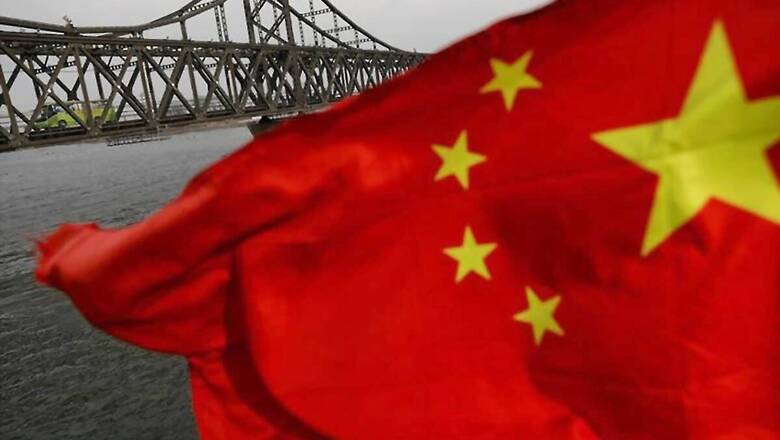
views
Much to India’s discomfiture, its all-weather ally Bangladesh has allowed China to conduct the last-stage human trial of a potential Covid-19 vaccine. The development could be seen as a setback for New Delhi which had earlier assured all help to Dhaka to contain the pandemic. It also indicates Dhaka’s growing proximity to Beijing, something India would like to avoid, especially in view of its current stand-off with China.
In May, India had donated 30,000 Covid test kits to the neighbouring country as part of its emergency medical assistance. Bangladesh was the first country to receive these test kits from India on priority, “which reflects the importance of Dhaka to New Delhi”, the Indian High Commission in Dhaka said in a statement.
However, Bangladesh’s latest move seems to have caused much heartburn in India, which has been consistently maintaining close ties with this neighbour. New Delhi is particularly worried over the possibility of infected persons coming across the border once the human trial begins, The Assam Tribune reported quoting unnamed Indian officials.
India shares a 4,096-km border with Bangladesh, most of which is porous. It had on several occasions flagged concerns about entry of illegal immigrants to the Northeast, including Assam, something Bangladesh has been denying all along.
Dhaka-Beijing equations
New Delhi’s indignation also stems from the fact that Bangladesh Prime Minister Sheikh Hasina apparently did not meet India’s High Commissioner despite repeated requests for a meeting in the past four months, The Hindu said, quoting a prominent daily of the country.
It said that all Indian projects have slowed down since the re-election of Prime Minister Hasina in 2019 with Chinese infrastructure projects receiving more support from Dhaka.
Prior to Bangladesh’s green signal to China’s Sinovac Biotech Ltd to conduct the vaccine trial on its population, Beijing had announced tariff exemption for 97 per cent of Bangladeshi products effective from July 1.
This came a month after Bangladesh Prime Minister Sheikh Hasina and Chinese President Xi Jinping held a discussion to upgrade their bilateral relations during the pandemic.
In June, Dhaka sought financial assistance from China to start work on nine projects worth $6.4 billion, including a seaport, a bridge, Teesta river management, among others.
In addition, China had in May expressed its desire to make the Dhaka North City Corporation (DNCC), as well as some other major city corporations, “sister cities” to tackle Covid-related challenges, according to the Dhaka Tribune. The “sister city” concept involves a long-term partnership between civic administrations in two countries.
Under this, China is expected to provide technical and financial support to Bangladesh to combat the Covid-19 pandemic, dengue outbreak, and other concerns.
China encircling India
India would do well to realise the fact that China is now resorting to pandemic diplomacy to expand its footprint in South Asia. Over the years, it has made generous offers to Nepal, Myanmar, Sri Lanka, the Maldives and Bangladesh. Chinese investment, mostly in the form of loans and grants, is concentrated in hard infrastructure – power, roads, railways, bridges, ports and airports, according to the American Enterprise Institute’s China Global Investment Tracker.
Unlike India, China sets its eyes on long-term strategic goals, and it is pursuing them vigorously in India’s neighbourhood through trade diplomacy. Its latest targets are Nepal and Bangladesh that have traditionally remained loyal to India. For instance, China has made efforts to boost its trade with Bangladesh which is now twice that of India – about $10 billion.
In Nepal, China is planning a railway track connecting Kathmandu and Shigatse in Tibet as part of its Belt and Road Initiative (BRI). The move is aimed at boosting trade and tourism prospects for Nepal, and easing its reliance on India.
In what could be another headache for India, Beijing has now urged Nepal, Afghanistan and Pakistan to join hands in a “four-party cooperation” to tackle the Covid-19 pandemic, and work on existing BRI projects. The development assumes significance as it comes against the backdrop of the months-long border stand-off between India and China.
Besides, Beijing seems to have taken advantage of India’s loosening grip over Kathmandu. Last month, Nepal Prime Minister KP Oli made critical remarks aimed at India, claiming there have been various kinds of activities in the “embassies and hotels” to remove him from power.
Wake-up call for New Delhi
India must act fast and act decisively in order to gain trust from its allies, especially Bangladesh, in whose creation India had played a crucial role. The Sheikh Hasina regime (of the Awami League) may have its reasons to seek China’s assistance to spur development in the country, but it would not like to upset India that has always been the first to offer a helping hand during a moment of crisis.
Needless to say, India and Bangladesh are close strategic partners in counter-terrorism, and both countries share crucial intelligence on jihadi elements operating in the region. India has been closely monitoring a network of Islamic State in Bangladesh, especially since the 2019 Easter Sunday bombings in Sri Lanka. The present Awami League government is known for its zero tolerance against terror, and New Delhi must continue providing assistance to Dhaka to protect its interest of keeping the neighbourhood safe and secure.
For India, the coronavirus crisis could be an opportunity in disguise if it decides to walk the extra mile to help Bangladesh. To counter China’s aggressive posture, India should do more for its next-door neighbour, which could be in the form of a joint strategy to tackle the pandemic and vaccine trials. In addition, India must convince Bangladesh to ensure that infected people don’t sneak into India. Earlier this month, India’s Border Security Force sounded an alert to check cross-border infiltration from Bangladesh and possible human trafficking in the wake of the Covid-19 pandemic.
(The author is a senior journalist and author based in Delhi. Views expressed are personal.)


















Comments
0 comment